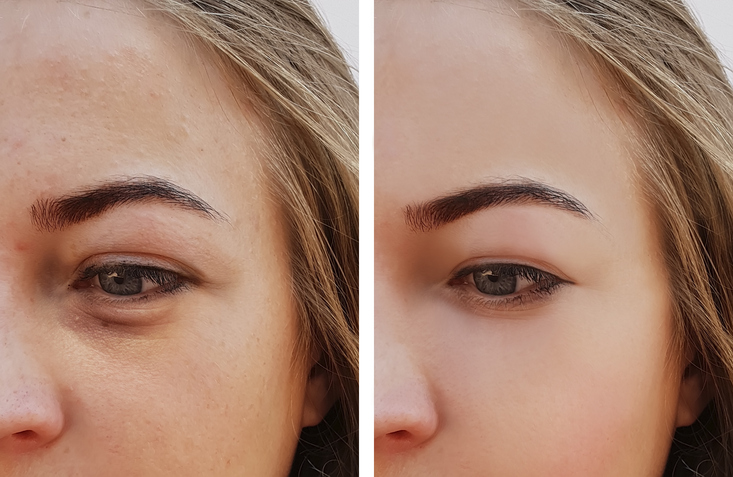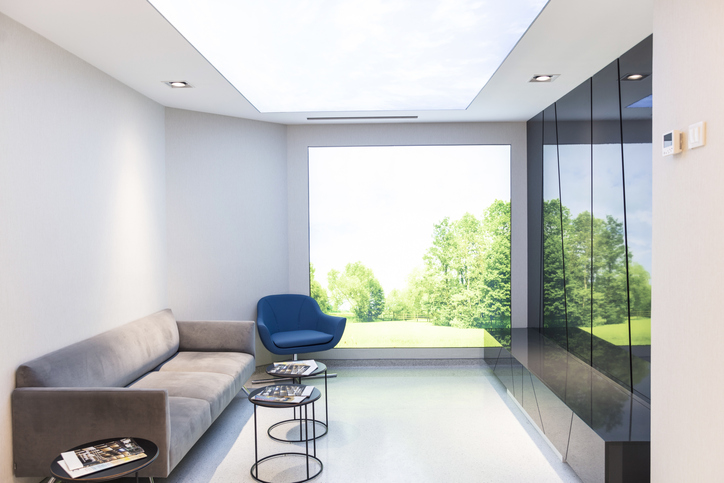The most important thing to start the day with energy is a good night's sleep. However, its importance is often overlooked in today's society, where many people suffer from insomnia. Insomnia is more than just the inability to sleep; it also affects the health of the skin. One of these is the development of dark circles, which can affect the appearance of the skin. Here we will take a deeper look at the mechanism of insomnia and dark circles formation and explain the characteristics and close relationship between the two. It will help you gain a better understanding of the link between sleep and skin health as well as a scientific understanding of the causes of your own insomnia and dark circles as knowledge to help you live a good daily life. We also hope that specific preventive measures and modern cosmetic medicine methods of dealing with the problem will help you to live a healthier life and have more beautiful skin.

Graduated from the Faculty of Medicine, National Kumamoto University. After serving as the director of major beauty clinics in Japan, etc., he opened Aladdin Aesthetic Clinic in 2023. He is a professional in aesthetic medicine with a doctorate in anti-aging research and many years of experience. With the motto of "Toward the realization of cosmetic medicine without lies," he aims to be the "Only One" together with his patients.
Does it come at least once in modern life? About Insomnia

Insomnia is a condition in which a person has difficulty getting 7~9 hours of quality sleep per night, and manifests itself in various ways, such as difficulty falling asleep, awakening in the middle of the night, and early morning awakenings. As these problems persist, the quality of daily life declines and stress and anxiety increase.
The causes of insomnia are many and varied, but can be caused by stress, irregular lifestyles, psychological problems (e.g., depression or anxiety disorders), physical illness (e.g., heart disease or thyroid problems), or the intake of some drugs or substances. Sleep environment problems (e.g., noise, brightness) can also cause insomnia.
The main symptoms of insomnia are difficulty falling asleep, continuous interruptions in sleep, waking up early in the morning and never sleeping again, and daytime fatigue. Decreased concentration, memory problems, and daytime sleepiness are also common symptoms. Insomnia can cause problems in many aspects of daily life, with effects on physical health (e.g., decreased immune function, increased risk of obesity, heart disease, diabetes), mental health (increased risk of depression, anxiety disorders), and performance (decreased learning and work efficiency).
In addition, insomnia can affect skin health. During sleep, the body's repair process takes place, new skin cells are produced, and old cells are removed. Inadequate sleep interferes with this process and can hasten skin aging. Lack of sleep can also increase levels of the stress hormone cortisol, which can cause skin inflammation. This can exacerbate skin conditions and cause problems such as atopic dermatitis, dry skin, and acne.
| (data) item | Contents |
|---|---|
| Insomnia Basics | The inability to get 7~9 hours of good sleep per night. Forms include difficulty falling asleep, mid-morning awakenings, early morning awakenings, and many others. It decreases the quality of daily life and increases stress and anxiety. |
| Causes of Insomnia | Stress, irregular lifestyle, psychological problems (depression and anxiety disorders), physical illness (heart disease and thyroid problems), drug and substance intake, and sleep environment problems (noise and brightness). |
| Insomnia Symptoms | Difficulty falling asleep, interrupted sleep, waking up early in the morning and never sleeping again, daytime fatigue, poor concentration, memory problems, irritability, and daytime sleepiness. |
| Effects of insomnia | Impact on physical health (decreased immune function, increased risk of obesity, heart disease, diabetes), mental health (increased risk of depression, anxiety disorders), performance (decreased learning and work efficiency), and skin health (skin aging, inflammation, atopic and dry skin, acne, dark circles formation). |
Why do dark circles form under the eyes in the first place?

Dark circles" are pigmentation or microscopic blood vessels under the skin that are visible under the eyes and give the impression of fatigue or poor health, which many people find complex or cause bad impressions in various situations. Dark circles are classified into two main types: hematogenous dark circles form due to blood stagnation from minute blood vessels under the skin and appear bluish-purple in color. Hyperpigmented dark circles, on the other hand, form due to excessive deposition of melanin pigment and appear brown. These differences affect how dark circles are treated.
Common causes of those dark circles include heredity, aging, eye fatigue, allergies, dehydration, smoking, inappropriate alcohol consumption, and insomnia. These factors can cause blockage of blood flow, causing microscopic blood vessels under the skin to become visible through the skin, forming dark circles. In addition, in age-related dark circles, blood vessels are more easily seen through the skin as it thins, and inflammation and allergic reactions also dilate blood vessels, forming dark circles. Other lifestyle factors such as smoking and excessive alcohol consumption also accelerate skin aging and contribute to dark circles.
Lifestyle habits, in particular, have a significant impact on the formation of dark circles, and lack of sleep and stress can worsen blood flow, resulting in the formation of dark circles. Unbalanced diets and dehydration can also impair skin health and cause dark circles. In particular, lack of sleep interferes with blood flow and increases the likelihood of dark circles forming.
To prevent and combat dark circles, it is recommended to start by reviewing lifestyle habits. It is important to ensure a good night's sleep and to manage stress appropriately. It is also helpful to eat a well-balanced diet, stay properly hydrated, and avoid tobacco and alcohol consumption. In terms of skin care, the use of moisturizing creams specifically for the eye area and massage to improve skin circulation are effective.
| (data) item | Contents |
|---|---|
| Bear Basics | Dark circles are classified into two main types: hematogenous (blue-purple) and hyperpigmented (brown). Hematogenous is due to blood stagnation and hyperpigmentation is due to excessive melanin deposition. |
| Common Causes of Bears | Heredity, aging, eye fatigue, allergies, dehydration, smoking, excessive alcohol consumption, and insomnia are the main causes. |
| The relationship between dark circles and lifestyle habits | Lack of sleep, lack of proper nutrition, and excessive stress can affect skin health and promote the formation of dark circles. |
Relationship between insomnia and bears

There is a clear link between insomnia and dark circles. Good sleep is an important component of skin health, and it is especially important for the fragile under-eye skin. As cosmetic dermatologists, we strongly recommend that getting a good night's sleep is an important factor in preventing dark circles and maintaining general skin health. It is important to pay attention not only to the duration of sleep, but also to its quality.
Direct relationship between insomnia and bears
Insomnia, or the inability to get enough sleep, affects the entire body, but its effects are more pronounced on the skin, especially in the area under the eyes. This is because the skin undergoes a process of repair and regeneration during the night. During sleep, new skin cells are produced and damaged cells are repaired. Inadequate sleep interferes with this important process and can accelerate skin aging. In addition, lack of sleep decreases blood flow, making it easier for dark circles to form, especially in the under-eye area where circulation is inadequate.
Sleep quality and dark circles
The quality of sleep also has a significant impact on the formation of dark circles. When deep sleep is not ensured, or when the body is awakened several times throughout the night, the body cannot fully carry out its repair process. As a result, the skin is not supplied with the nutrients it needs to remain healthy, and hyperpigmentation and inflammation are more likely to occur. This further contributes to the formation of dark circles.
Hormonal balance and dark circles
Sleep is extremely important for maintaining hormonal balance. In particular, growth hormone, which is secreted during sleep, is necessary for skin cell regeneration and repair. Inadequate sleep interferes with the production of this hormone and may hasten skin aging. The stress hormone cortisol also increases with sleep deprivation, which can cause inflammation and further aggravate dark circles.
lymph flow and dark circles
During sleep, the lymphatic system operates actively to eliminate toxins from the body. Lack of sleep interferes with this lymphatic flow and allows toxins to accumulate, especially in the vulnerable areas under the eyes. This can lead to the formation of dark circles.
Sleep and Antioxidants
Good sleep aids in the production of antioxidants. These neutralize free radicals and help keep skin healthy. Lack of sleep interferes with antioxidant production and can increase free radicals that cause dark circles and aging skin.
Improve Insomnia and Dark Bears! Effective Countermeasures

To improve insomnia, it is important to start with lifestyle changes. This includes regular exercise, a healthy diet, and regular sleep habits. Moderate intake of caffeine and alcohol, as well as reducing screen time (e.g., TV and smartphones) at night can also help.
In addition, it is important to create a comfortable sleeping environment, i.e., a bedroom that is dark, quiet, and of moderate temperature. Stress management is also important, and relaxation techniques such as yoga and meditation can be helpful. In cases of persistent insomnia, sleep therapy, counseling, and medication under the supervision of a physician are also recommended considerations.
To improve sleep quality, it is first important to maintain a consistent bedtime and wake-up time and to regulate the body's internal clock. Bedrooms should be dark, quiet, and maintained at an appropriate temperature. Bed should be used only for sleep and not for normal use, such as when resting, and caffeine, alcohol, and heavy meals should be avoided before bedtime. In addition, regular exercise has been proven to improve sleep quality, but it is a good idea to avoid strenuous exercise and have a relaxation period a few hours before bedtime.
How to prevent and improve dark circles
To combat dark circles, it is important to first identify the cause and then select a corresponding treatment. For example, if the dark circles are due to insomnia or stress, improving lifestyle habits and ensuring sleep time and quality can be effective. Dietary habits can also have an impact. Vitamins K and C, in particular, improve blood circulation and help fade skin pigmentation. Adequate hydration is also important for skin health.
Care must also be taken in skin care. It is important to protect the skin, especially around the eyes, with proper moisturizing and UV protection. The use of eye creams containing anti-aging ingredients and products containing retinoids and vitamin C, which are effective against dark circles, are recommended. In addition, home massage is recommended. Lightly tapping under the eyes with your fingers can stimulate blood circulation and reduce dark circles.
However, daily measures alone may not be effective for deep-seated dark circles, at which point cosmetic dermatology treatment can be effective. It is possible to choose the best treatment, such as laser therapy, hyaluronic acid injections, or light therapy.
Through lifestyle changes, skin care, and in some cases professional treatment, it is possible to improve insomnia, sleep quality, and prevent or improve dark circles. This information should serve as an opportunity to review your lifestyle habits and skin condition.
Could you be an insomniac? Let's self-diagnose the quality of your sleep!
Use the following information to self-diagnose insomnia. If your total score is 4 or more, you are generally considered to have insomnia, and we recommend that you work on improving your condition or consult a specialist. However, this is only a reference and the diagnosis of insomnia should be left to a specialist, so please try to check your own condition only.
| evaluation item | Description. | score |
|---|---|---|
| (1) Struggle to sleep | Takes more than 30 minutes to fall asleep at least 3 times a week | 1 |
| (2) Frequent waking up in the middle of the night | Waking up for more than 1 hour during the night at least 3 times a week | 1 |
| (iii) Waking up early in the morning and not being able to sleep again | Waking up earlier than planned in the morning and not being able to go back to sleep at least 3 times a week | 1 |
| (4) Insufficient sleep | More than 3 days a week when you do not get more than 7 hours of sleep | 1 |
| (5) I don't get tired even if I sleep. | Have situations where they are tired during the day at least 3 days a week, even if they have had sufficient sleep. | 1 |
| 6) Stress, unhealthy lifestyle, inappropriate sleep environment | If you feel that the above factors are clearly affecting your sleep | 2 |
Effective treatment for dark circles removal

The classification of dark circles by color is primarily indicative of their causes, such as blood circulation and pigmentation under the skin. Below is a detailed description of the characteristics, causes of occurrence, and treatment of each type of dark circles.
| type | feature | cause of occurrence | Main treatment methods |
|---|---|---|---|
| blue bear (Ursus arctos) | Skin is transparent, blood vessels are visible and appear blue. | Thin skin, poor circulation, fatigue, lack of sleep | Improvement of lifestyle (sleep, eating and drinking), skin care and massage to promote blood circulation |
| brown bear (Ursus arctos) | Appears brown due to melanin pigmentation | Prolonged UV exposure, skin friction, irritation | Skin care products containing whitening ingredients, laser treatment |
| black bear | Mixed hematogenous and hyperpigmented dark circles, sagging and thickening of the skin | Blood circulation and pigmentation, sagging skin, dryness and keratinization | Skin care around the eyes (moisturizing and whitening), lifestyle modification, hyaluronic acid injections, laser treatment, droopy eyelid surgery |
blue bear (Ursus arctos)
The color of these dark circles often appears blue because venous blood, which has less oxygen in the blood, appears to penetrate the skin. They are often seen in people with thin, translucent skin and poor circulation. Additionally, fatigue and lack of sleep also worsen venous blood flow and accentuate blue dark circles. Treatment includes lifestyle modifications (getting more sleep, eating and drinking healthy foods), massages to stimulate skin circulation, and serums.
brown bear (Ursus arctos)
Brown dark circles are caused by excessive accumulation of melanin pigment, which is the main cause of skin pigmentation. Prolonged UV exposure, skin friction, and skin inflammation cause an increase in melanin pigmentation, which appears as dark circles. Skin care products containing whitening ingredients (vitamin C derivatives, hydroquinone, etc.) and laser therapy are effective in treating this type of dark circles.
black bear
Dark circles may be a combination of hematogenous and hyperpigmented dark circles or may be related to sagging or thickening of the skin. Dark circles are also more likely to appear black when the skin around the eyes becomes dry and keratinized. Treatment of dark circles depends on the cause, but may include skin care around the eyes (moisturizing and whitening care), lifestyle modification, hyaluronic acid injections, laser treatment, and blepharoplasty surgery.
Downtime in the treatment of dark circles
Each treatment depends on the type, extent, and depth of the dark circles. Therefore, a consultation prior to the consultation is necessary to select the appropriate treatment. In addition, these treatments do not completely eliminate dark circles once, but require regular treatment and ongoing skin care.
| treatment | down time | important point |
|---|---|---|
| laser therapy | A few days to a week | Redness and swelling may occur. First time treatment or sensitive skin may require longer downtime. Post-treatment skin care and UV protection are important. |
| hyaluronic acid injection | Minimal (possible to return to daily activities immediately after injection) | The injection site may temporarily swell and bruise. It is recommended to avoid treatment before important events. |
| Blepharoplasty | Approx. 2 weeks | After surgery, the area around the eye may swell and bruise blue. Driving and other visually demanding activities should be avoided, as vision may be temporarily blurred. |
summary
Insomnia and dark circles are deeply linked, and the quality and quantity of sleep directly affect skin health. Prolonged insomnia or poor quality sleep can cause dark circles, one of the most common skin problems. Stress, irregular lifestyle, and disordered eating and drinking are also major causes of insomnia. Work on ways to improve insomnia and try to improve not only the quality of your sleep, but also the health of your skin. For persistent dark circles, consider dark circles removal treatment and choose the best remedy for each treatment method in advance counseling. It is important to maintain beautiful, healthy skin through proper sleep and skin care.
At Aladdin Aesthetic Clinic, based on our many years of experience in cosmetic medicine and cosmetic dermatology and the knowledge of our doctoral degree, we provide counseling that aims to be "only one", offering the best treatment for each person we meet. We offer only the necessary treatments without any unnecessary information or suggestions.
Feel free to use our official LINE account for 24-hour counseling and reservations. Please feel free to contact us for free counseling for the first time or if you have any concerns.





